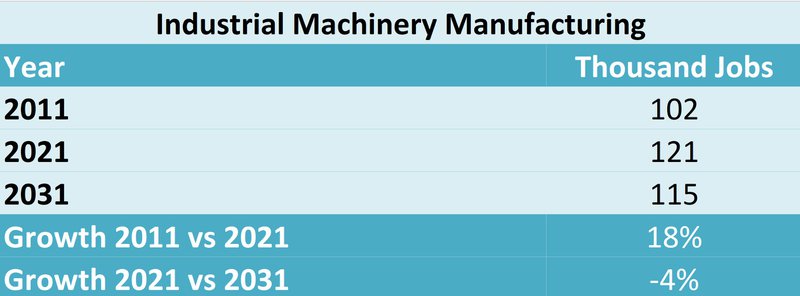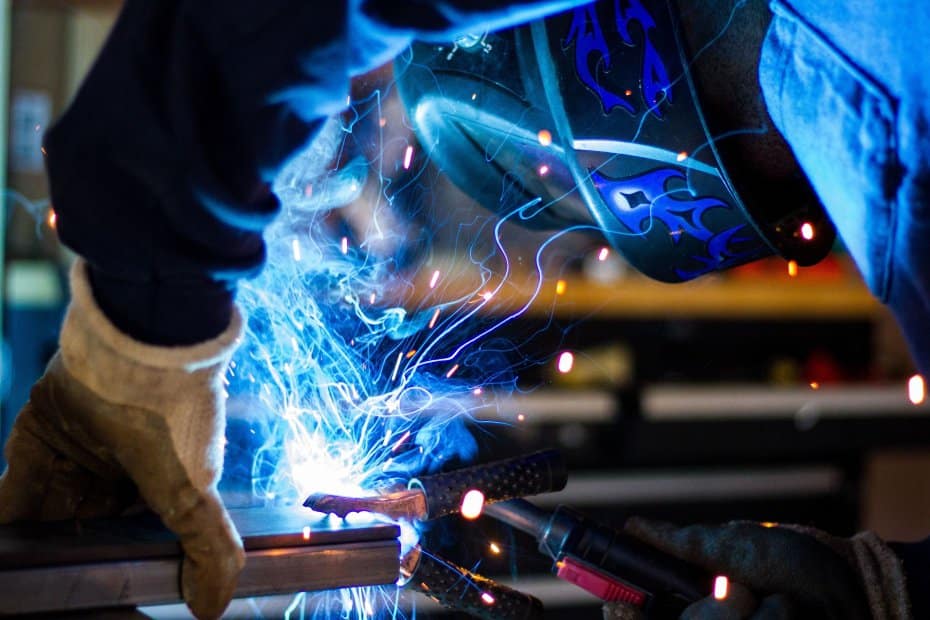Industrial machinery and components play a crucial role in the manufacturing sector. These components are integral to modern-day industrial processes, from massive machines that process raw materials to intricate systems that control production lines. But just how many jobs are available in industrial machinery/components?
With ever-evolving technology and advancements, there is an undeniable need for skilled professionals to design, build, install, and operate industrial machinery. In this article, we’ll look at the industrial machinery/components job market and explore the different roles available there.
What is Industrial Machinery?
Industrial machinery refers to equipment and tools used in various industrial sectors. It includes metalworking, material handling, processing, and construction. These machines are essential to modern manufacturing processes involving large-scale production capabilities.
Metalworking machines include lathes, drills, and milling machines that shape metals into different forms. Material handling equipment includes conveyor systems and hoists which assist in transporting materials from one point to another.
Processing machines operate on raw materials, transforming them into finished products such as food processing or packaging plants. Construction equipment involves heavy-duty machinery like bulldozers that are utilized during infrastructure projects.
The field of industrial machinery/components follows a constant upward trajectory. The technological advancements result in more demand for skilled workers who can design, build and maintain these complex systems. Industrial jobs require specialized know-how culminating from academic training and practical experience. It allows professionals to forecast potential pitfalls while maintaining safety standards throughout any job execution process. It ensures an organization’s success is sustained over time.
How Many Jobs Are Available In Industrial Machinery/Components?
The number of jobs available in industrial machinery/components was 121 thousand in 2021, growing from 102 thousand in 2011. However, the industry number of jobs tends to decrease to 115 thousand in 2031.

The job market within the industrial machinery and components sector is vast, providing many opportunities for skilled professionals. With an increasing demand for cost-effective, efficient, and sustainable manufacturing processes, there is a growing need for individuals in industrial automation, mechanical engineering, electrical engineering, and related fields.
Careers in this field can include positions such as design engineer, project manager, or technician working on assembly lines. The salaries vary greatly depending on experience level, skills acquired, and location. However, the growth prospects remain high due to ever-increasing technological advancements within the manufacturing industry.
Overall, it’s clear that careers within this sector offer promising career paths for those with initiative and technical expertise in this specialized area.
How Many Types of Jobs Are Available In Industrial Machinery/Components?
The most common roles within this field include design engineers, mechanical engineers, machinists, welders, and assemblers. These individuals are responsible for designing, building, installing, and maintaining all industrial machinery.
In addition to these traditional manufacturing jobs, there is increasing demand for professionals with expertise in areas such as automation technology and robotics. These fields quickly evolve as manufacturers seek to streamline production processes through increased automation.
Let’s check some of the most common jobs in the sector.
Quality Inspector
Quality inspector ensures that products meet established standards throughout the manufacturing process. Industrial maintenance technicians also play a crucial role in keeping equipment functioning at its best by regularly inspecting, cleaning, and repairing machines.
Maintenance Technician
Maintenance technicians can be found working across industries in several positions as well. Technicians with specific expertise, like industrial mechanics or hydraulic and pneumatic technicians, make valuable additions to most teams since they possess specialized knowledge complementing their colleagues' generalized know-how on machinery's repair and optimization processes.
Industrial Machinery Mechanics
Mechanics are trained professionals experienced in machine parts' assembly/disassembly for repair work if necessary.
Hydraulic & Pneumatic Technicians
Hydraulic & pneumatic experts specialize in maintaining fluid management systems associated with industrial machinery componentry.
Technical Sales
Technical sales professionals are responsible for selling and promoting industrial machinery to clients while providing technical support and solutions to meet customer needs.
Welder
Welders use their expertise with metal fabrication techniques to create or repair components used in manufacturing.
Machinists
Machinists use precision tools and equipment to produce mechanical parts from raw materials such as metals, plastic, or ceramics.
Process Engineers
Process engineers design and optimize manufacturing processes by analyzing data on productivity rates, cost factors, and quality control measures, among other things. Lastly, technical sales managers oversee teams of sales representatives and develop strategies that align with company objectives.
Data Analysts
Data analysts are in high demand within this sector as they are responsible for collecting and analyzing data, which is used to identify areas of improvement in machinery performance and maintenance practices. Their insights help companies make informed decisions about operations, cost reduction strategies, quality control protocols, and resource allocation.
Mechanical Engineers
Mechanical engineers are essential in designing industrial systems, ensuring they meet technical specifications while adhering to safety standards. This profession requires a deep understanding of mechanics, thermodynamics, fluid dynamics, and other engineering disciplines. They work on everything from small machine parts to entire assemblies working alongside experts such as electricians or software developers who may specialize in different fields.
Purchasing Managers
Purchasing managers within the manufacturing sector are tasked with efficiently sourcing raw materials such as metal castings, gears, or electronic components for a company's production lines. Moreover, they are also responsible for negotiating contracts with suppliers along streamlining procurement processes encompassing purchase order creation, shipment tracking, and supplier management, helping reduce costs at scale.
Industrial Engineers
Industrial engineers focus on streamlining workflow efficiencies by supervising workers' interactions with factory equipment optimizing manufacturing methods and material handling procedures, increasing productivity through minimizing waste implementing the best processes at scale wherever there may be bottlenecks causing inefficiencies across batches of products leading up to auditing multiple departments.
Continuous Improvement Engineers
Continuous Improvement Engineers drive product design rigorously; evaluate system effectiveness through metrics and implementation failure analysis, assessing external customer feedback; apply Six Sigma or Lean principles commonly employed across industries like chemical nuclear aerospace and automotive food processing cosmetics, making a production run more smoothly.
Bottom Line
The industrial machinery and components industry offers various job types that cater to multiple skill sets and interests. With different job types available, from entry-level positions requiring no experience to leadership roles, there is ample opportunity for growth and advancement based on skillsets and qualifications. In this article, we answered how many industrial machinery/components jobs are available.
As technology advances at an unprecedented rate across all industries globally, it will likely create new job types along the way. Meaning even more options may become available over time!

Christian has over ten years of experience in marketing agencies. Currently, he has been dedicating his time to a tech startup and also writing for major publications. He loves podcasts and reading to keep up with the latest trends in marketing.
